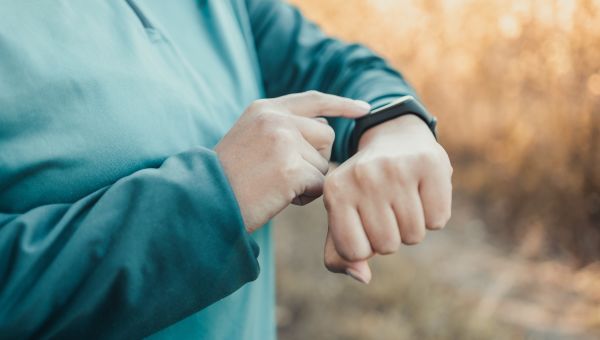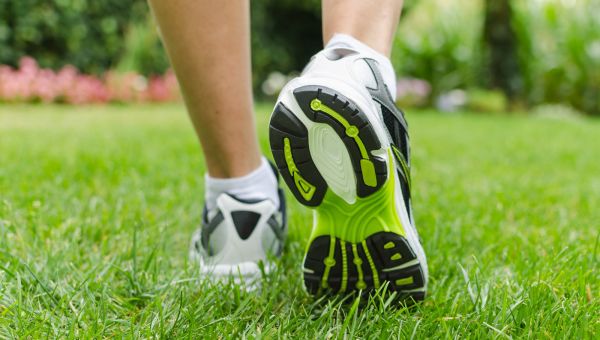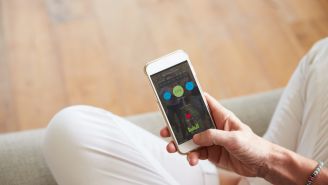5 powerful health numbers to start tracking today
When you keep tabs on your habits you can take a big step toward better health.
Updated on December 6, 2024

Some of your risk for disease is outside your control. But a good amount lies within your hands. For example, between 30 and 50 percent of cancer cases may be prevented by changing lifestyle habits and environmental factors over which you have some influence, according to the World Health Organization (WHO).
To better manage disease risk and other aspects of your… Show More
Some of your risk for disease is outside your control. But a good amount lies within your hands. For example, between 30 and 50 percent of cancer cases may be prevented by changing lifestyle habits and environmental factors over which you have some influence, according to the World Health Organization (WHO).
To better manage disease risk and other aspects of your well-being, it may help to start keeping track of your personal health numbers and trends. “When people log what they're eating, they eat better. When they track their movement, they tend to move more,” says Keith Roach, MD, associate professor in clinical medicine in the division of general medicine at Weill Cornell Medical College and New York Presbyterian Hospital.
Try using a wearable activity tracker, a simple pedometer, or an online health tracker to take steps today toward better health. You can also track multiple dimensions of your health—including sleep, stress, alcohol consumption, diet, and exercise—using Sharecare (available for iOS and Android). Get started today.
Show Less
Track Sleep to Boost Mood
The quantity and quality of sleep you get each night can affect your mental health. Inadequate or poor sleep may lead to feeling irritable, stressed out, anxious, or depressed. But getting enough good sleep can boost your focus and outlook.
To check how long and how well you sleep, try a… Show More
The quantity and quality of sleep you get each night can affect your mental health. Inadequate or poor sleep may lead to feeling irritable, stressed out, anxious, or depressed. But getting enough good sleep can boost your focus and outlook.
To check how long and how well you sleep, try a wearable sleep tracker. These devices can gather useful information, including estimates of how long you’re asleep and whether your sleep is interrupted or restless. They may also be able to detect the phases of your sleep—whether it’s a light phase or deeper, more restful phase.
Once you start to see patterns, you can learn how sleep plays a role in your mental well-being—and take steps to manage it.
Show Less
Track Stress to Eat Better
Many of us change our eating habits when we feel stressed. Some people overeat or reach for overly processed foods, while others cut back or even skip meals. Tracking your stress levels may help you figure out what triggers these eating patterns.
To become more aware of your triggers, try… Show More
Many of us change our eating habits when we feel stressed. Some people overeat or reach for overly processed foods, while others cut back or even skip meals. Tracking your stress levels may help you figure out what triggers these eating patterns.
To become more aware of your triggers, try keeping a journal. Record when you feel the most stress, what sets it off, and what you do in response to it. Wearable devices that monitor your heart rate and your heart rate variability may also give you some limited information about what triggers your stress.
Show Less
Track Alcohol to Live Longer
Excessive use of alcohol accounts for about 178,000 deaths each year in the United States, according to the Centers for Disease Control and Prevention (CDC). About one-third of those deaths are due to alcohol-related vehicle crashes, while the other two thirds are related to health conditions… Show More
Excessive use of alcohol accounts for about 178,000 deaths each year in the United States, according to the Centers for Disease Control and Prevention (CDC). About one-third of those deaths are due to alcohol-related vehicle crashes, while the other two thirds are related to health conditions caused by too much drinking over time. These include cancer, liver disease, and heart disease.
Tracking your alcohol intake can make you aware of how much you truly drink in a day, a week, and in the long run. If you find you’re drinking too much, you can take steps to cut back. Remember, moderate alcohol consumption is considered to be no more than one drink per day for women or two per day for men.
Show Less
Track Diet and Exercise, Reverse Type 2 Diabetes
More than 1 in 10 U.S. adults have diabetes, and many don’t realize they’ve developed the disease. The vast majority have type 2 diabetes, which has a number of modifiable risk factors. These include being overweight or obese and not getting enough movement. The good news: With diet and exercise,… Show More
More than 1 in 10 U.S. adults have diabetes, and many don’t realize they’ve developed the disease. The vast majority have type 2 diabetes, which has a number of modifiable risk factors. These include being overweight or obese and not getting enough movement. The good news: With diet and exercise, you may be able to drop weight, become more active, and manage and even reverse type 2 diabetes.
Tracking your eating patterns and activity levels can in several different ways. It can:
- Make you more aware of your current diet and exercise habits
- Show you your progress and motivate you to make additional changes
- Give your healthcare provider information so they can tailor a treatment plan more for your needs
Speak with a provider about how tracking can help you.
Show Less
World Health Organization. Preventing Cancer. Page accessed May 24, 2024.
Harvard Medical School - Division of Sleep Medicine. Sleep and Mood. Page last reviewed October 1, 2021.
Johns Hopkins Medicine. Do Sleep Trackers Really Work? Page accessed May 24, 2024.
American Psychological Association. Stress in America™ 2021: Stress and Decision-Making During the Pandemic. 2021.
National Cancer Institute. Perceived Stress Scale. Page accessed May 24, 2024.
Martinez GJ, Grover T, Mattingly SM, et al. Alignment Between Heart Rate Variability From Fitness Trackers and Perceived Stress: Perspectives From a Large-Scale In Situ Longitudinal Study of Information Workers. JMIR Hum Factors. 2022 Aug 4;9(3):e33754.
Centers for Disease Control and Prevention. Deaths from Excessive Alcohol Use in the United States. Page last reviewed April 16, 2024.
Cleveland Clinic. Diabetes. Page last reviewed February 17, 2023.
National Institute of Diabetes and Digestive and Kidney Diseases. Risk Factors for Type 2 Diabetes. Page last reviewed July 2022.
American Heart Association. Food Diary — Keep Track of What You Eat and Drink. Page last reviewed September 12, 2023.
National Institute on Aging. Exercise and Physical Activity Tracking Tools. Page last reviewed March 3, 2021.
University of Michigan Health. Type 2 Diabetes: Can You Cure It? Page last updated October 2, 2023.
More On

article

article

slideshow
